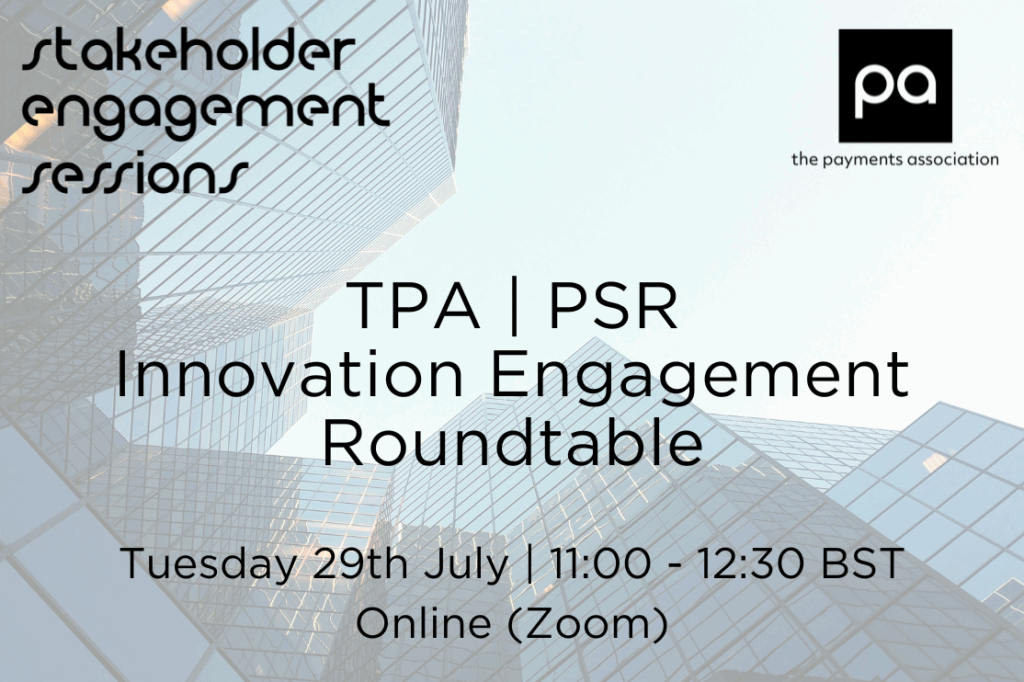
TPA | PSR – Innovation Engagement Roundtable
Event OverviewInnovation is rightly a big focus across the payments ecosystem — including for the PSR, which has a primary objective to promote the development of, and innovation in, payment

Event OverviewInnovation is rightly a big focus across the payments ecosystem — including for the PSR, which has a primary objective to promote the development of, and innovation in, payment
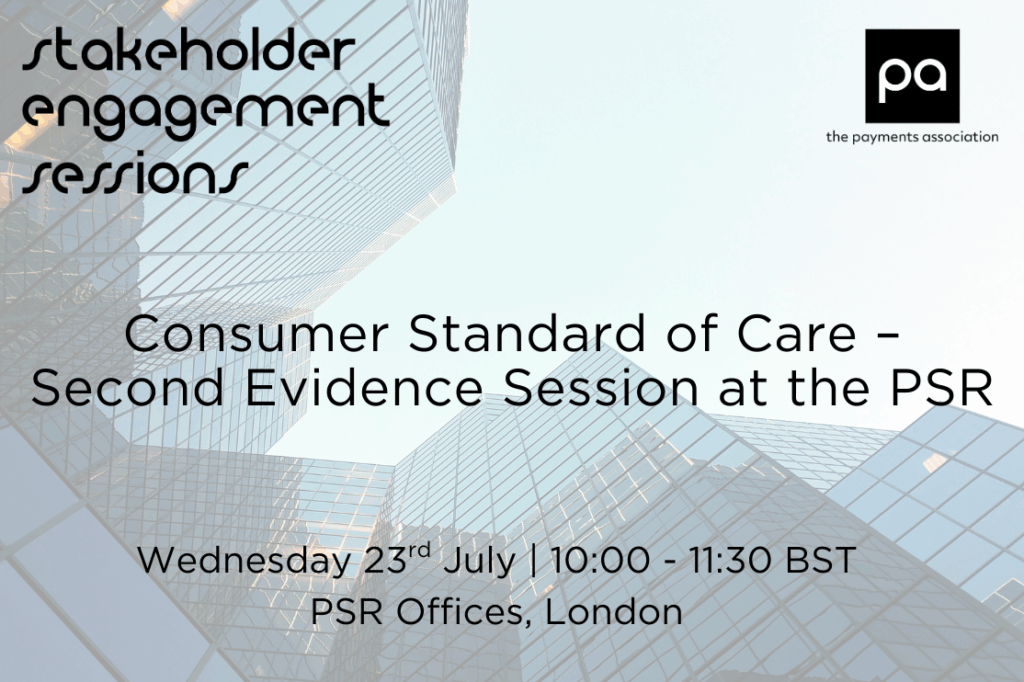
About the Session We’re hosting a follow-up evidence session on the Consumer Standard of Care (CSoC) at the Payment Systems Regulator. This 90-minute discussion is a vital opportunity for members
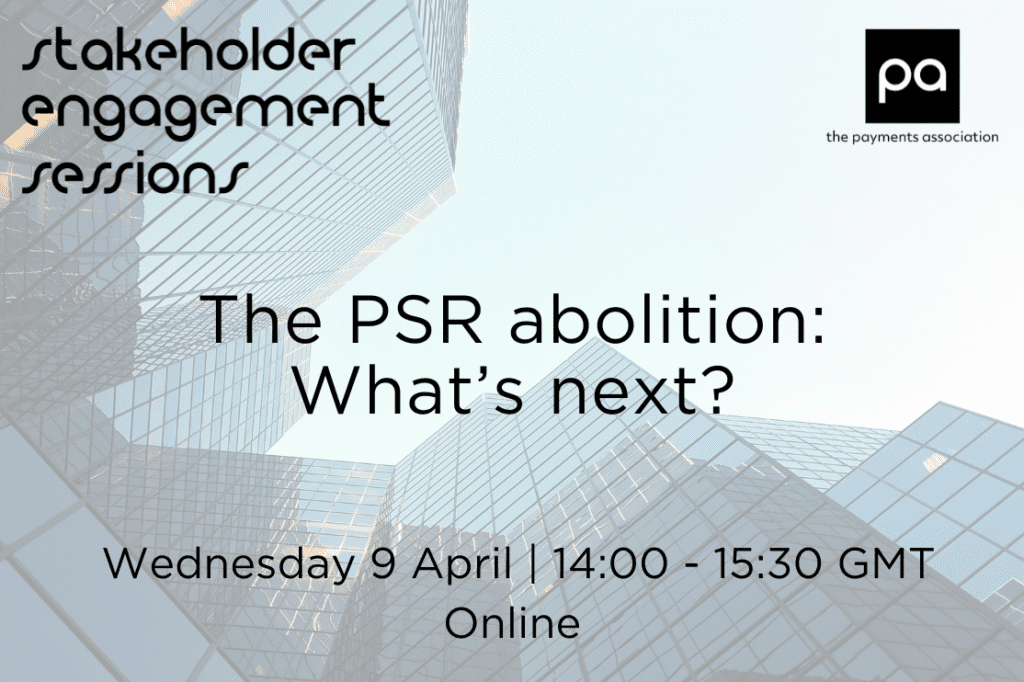
Members are invited to join our evidence session to gather members’ views on the future of the regulatory set-up for payments. Why Attend? Contributing to the design of regulatory frameworks
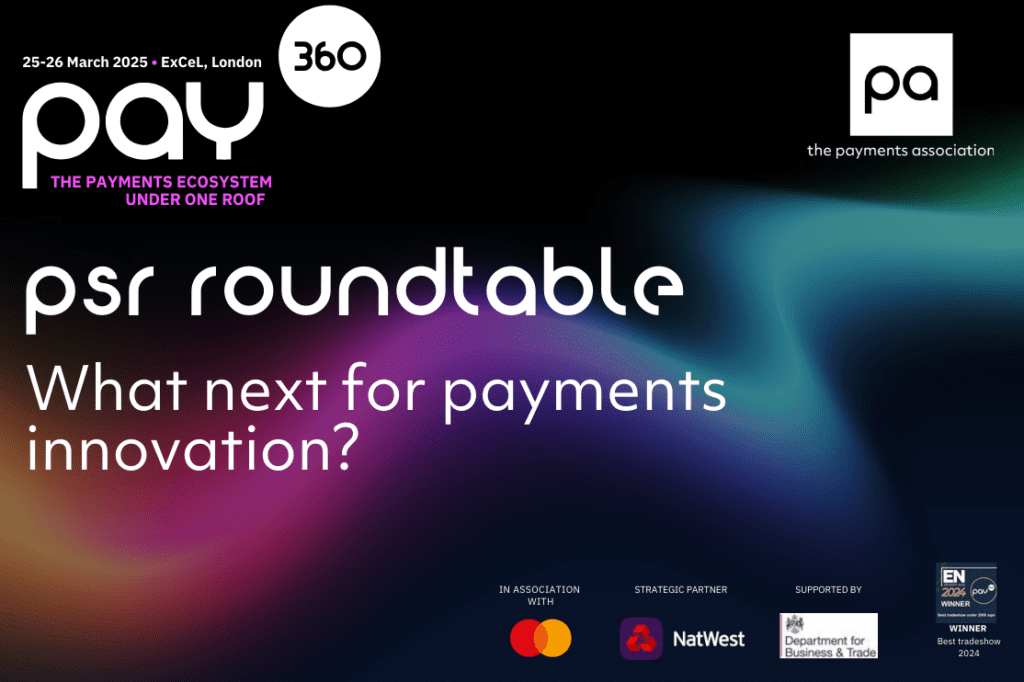
Members of The Payments Association are invited to join the Payment Systems Regulator’s (PSR) roundtable at PAY360 to discuss where future innovation in payments is coming from in the UK
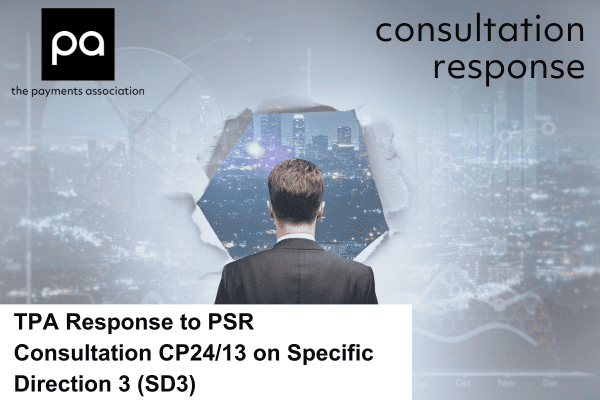
The Payments Association welcomes the opportunity to contribute to the PSR’s Consultation paper CP24/13 “Proposed approach to Specific Direction 3 Pausing the requirement for a competitive procurement”. The community’s response
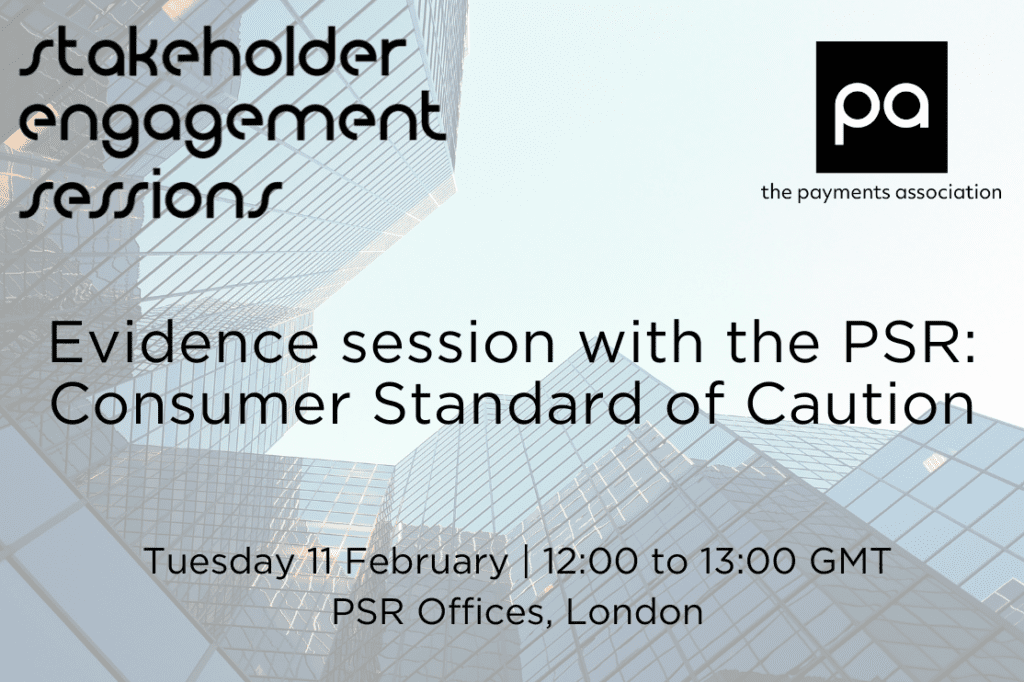
Join us for this important 1-hour session where we tackle one of the most pressing issues in APP fraud regulation—the PSR’s Customer Standard of Caution (CSC) approach. CSC emerged as
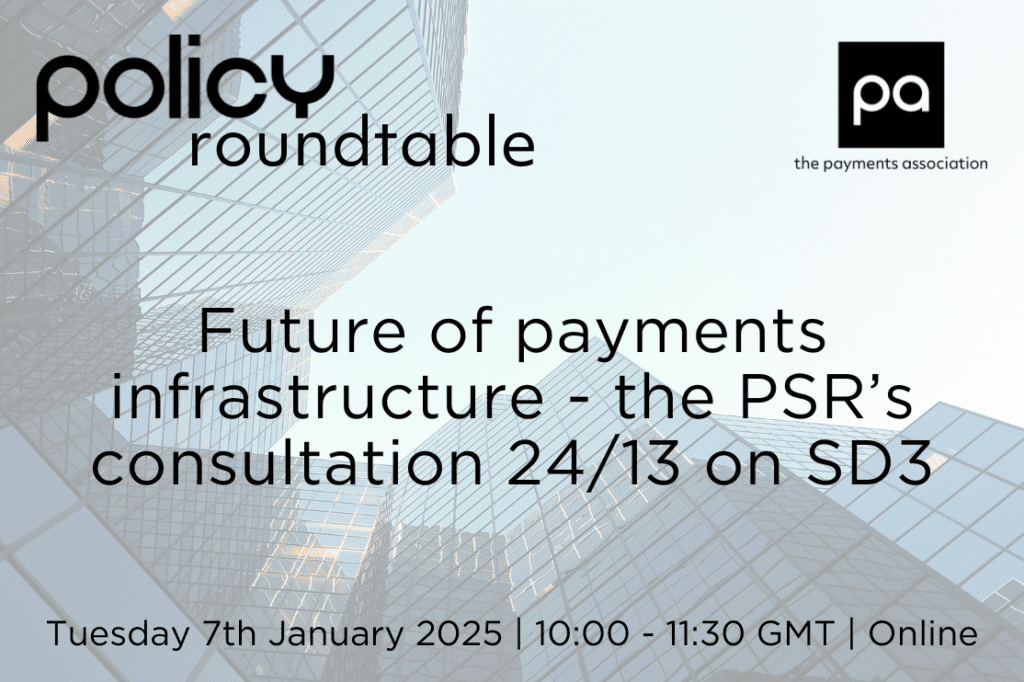
The PSR is consulting on proposed changes to Specific Direction 3 (SD3), which sets the legal requirements for Pay.UK in procuring upgraded infrastructure for payments currently made over Faster Payments
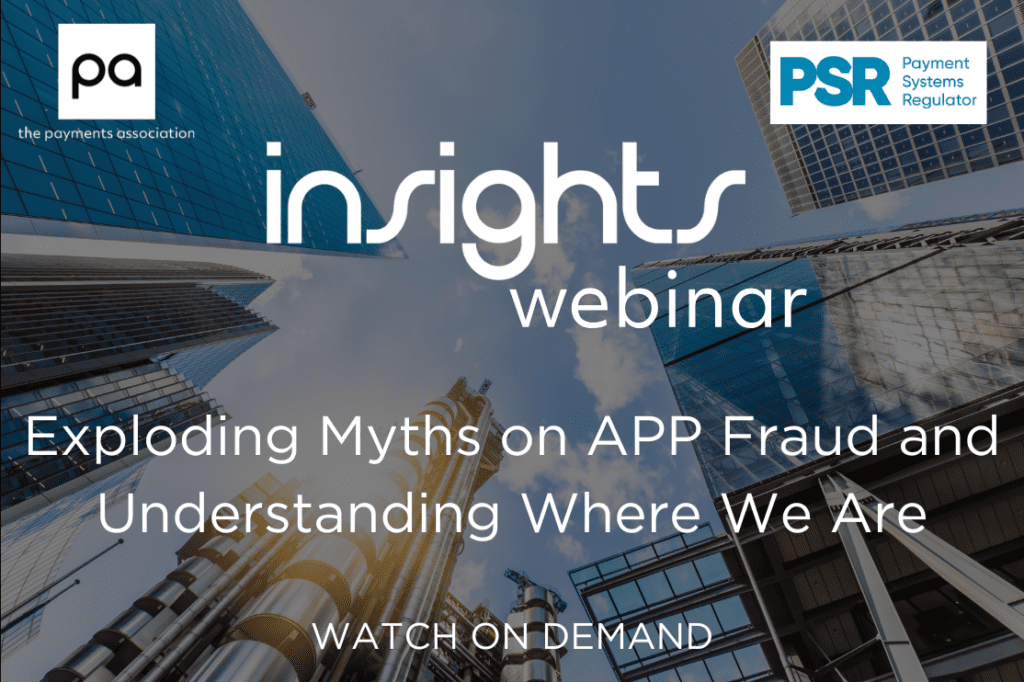
With the new rules from the PSR requiring PSPs to reimburse customers who have been scammed arriving in October 2024, The Payments Association has undertaken a survey to discover what

This workshop is an opportunity for TPA members to hear more about the PSR’s Mid-Strategy review, including the key findings and proposed next steps for the PSR. The PSR will

On Thursday 28 November (from 11:00 to 12:30), the PSR will be hosting an event at their offices that will explore what’s next for VRPs, particularly around pricing. In line
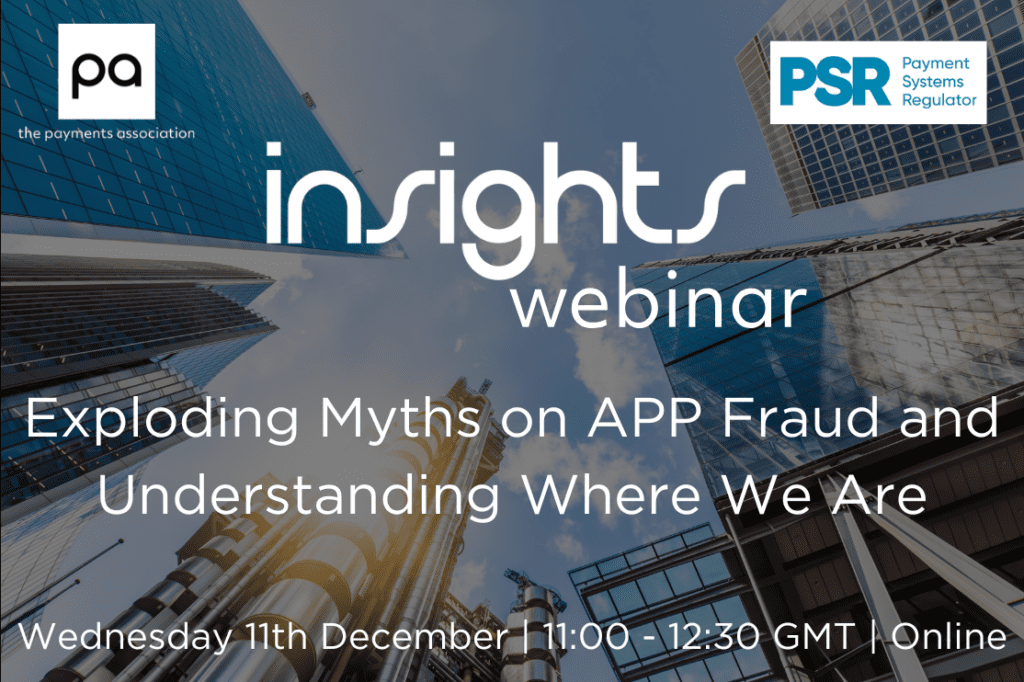
With the new rules from the PSR requiring PSPs to reimburse customers who have been scammed arriving in October 2024, The Payments Association has undertaken a survey to discover what
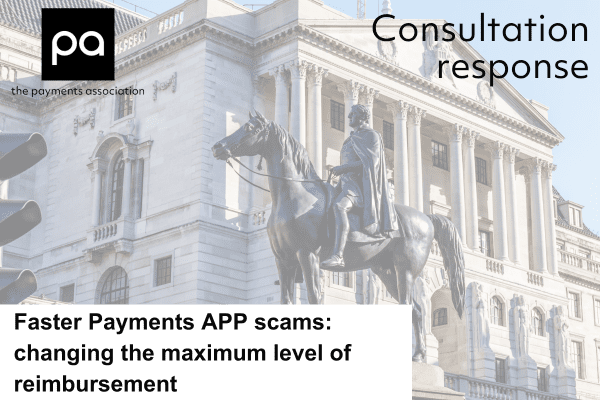
The Payments Association welcomes the opportunity to contribute to the PSR Consultation Paper “Faster Payments APP scams: changing the maximum level of reimbursement”. The community’s response contained in this paper
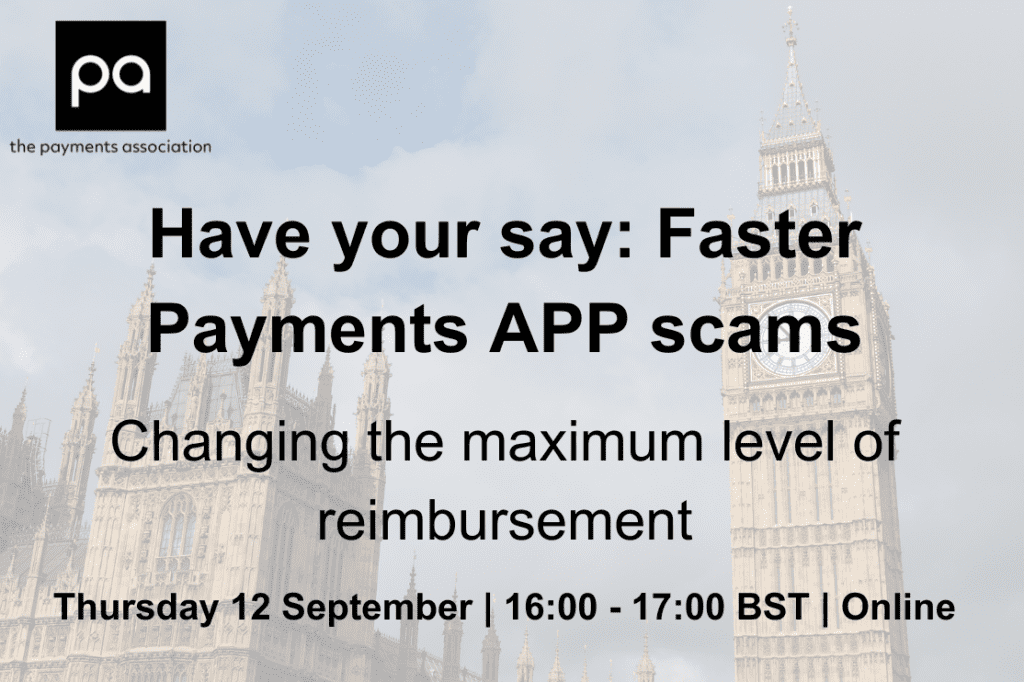
Join us as we propose changes responding to the PSR new consultation on the maximum reimbursement level for APP scams, effective from 7 October 2024. The new proposed cap is
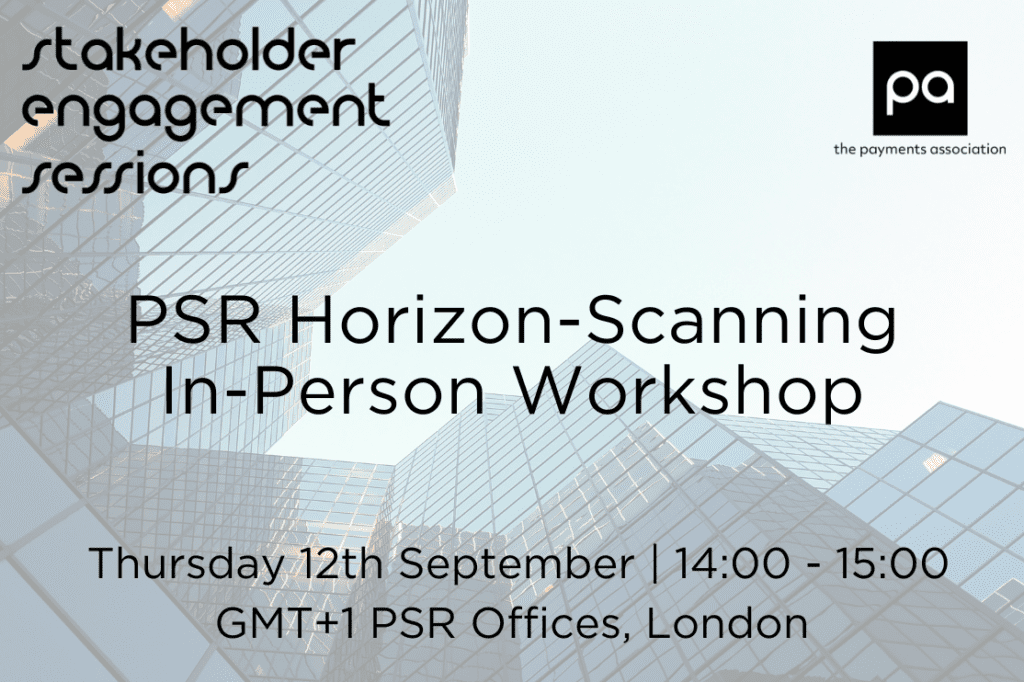
This horizon-scanning workshop is an opportunity for members of TPA to discuss with the PSR what we consider to be priorities in the short to medium term, and what we
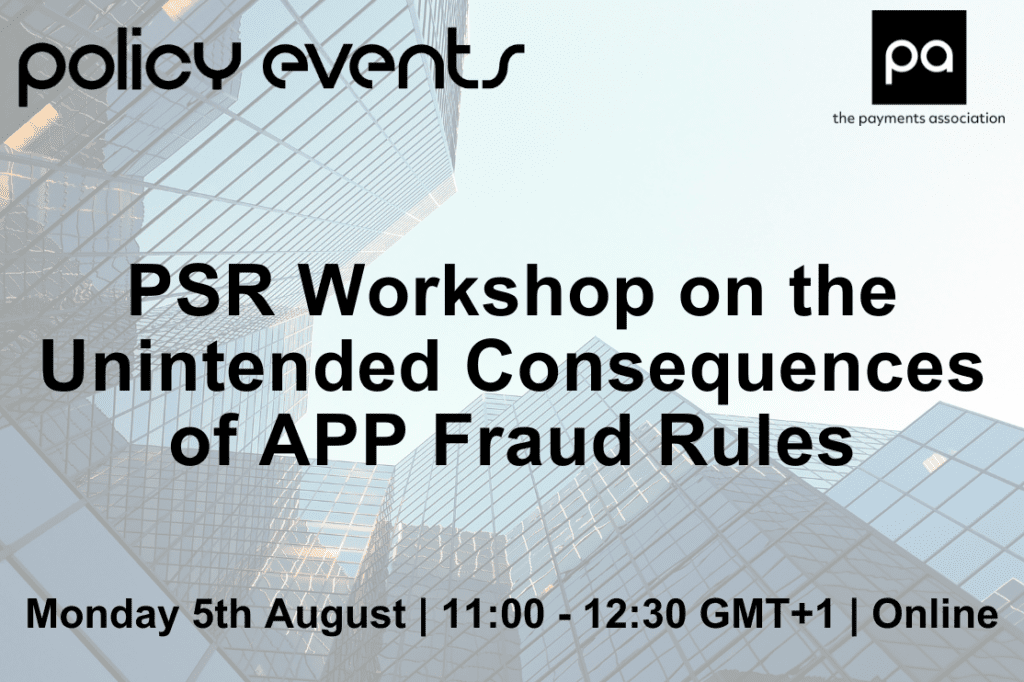
PSPs are working hard to be ready to comply with the PSR’s new regulations aiming to prevent APP fraud by October 7th 2024. But the devil is in the detail: often

The Payment Systems Regulator (PSR) is developing their compliance monitoring framework and wants your input The PSR established its Supervision and Compliance Monitoring Division in 2023. Prior to publishing their
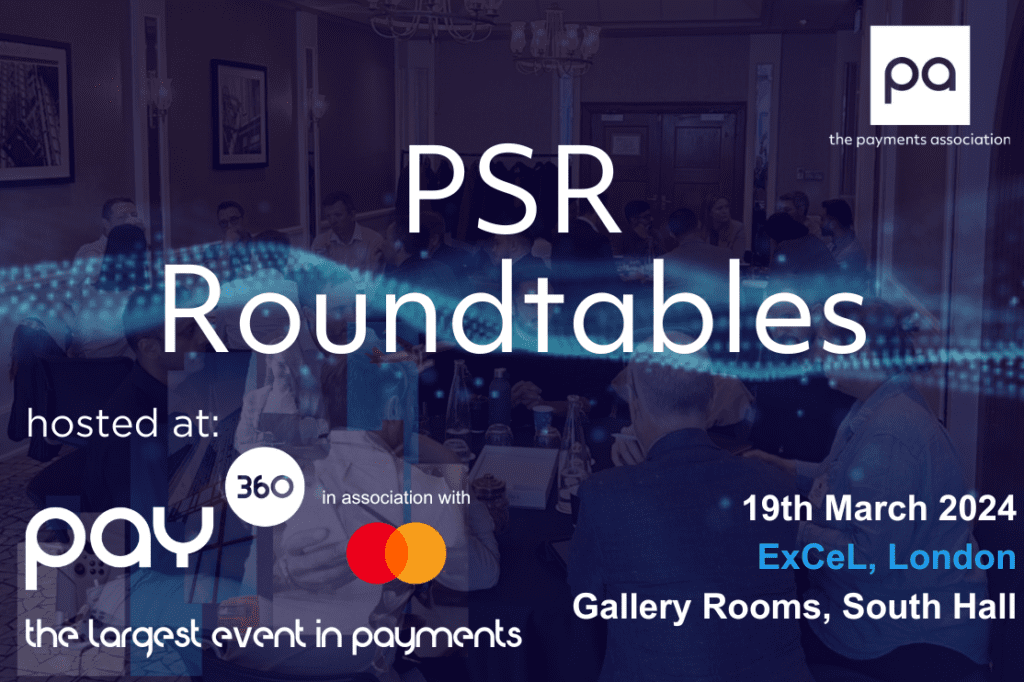
Join the Payment Systems Regulator’s roundtables at PAY360 to discuss where future innovation in payments is coming from in the UK. Conversation topics will include the impact of technological change

In the first half of 2023, UK Finance reported authorised push payment (APP) fraud losses amounting to £293.3 million, with the total number of APP cases increasing by 22%. The nature of authorised push payment (APP) fraud was harrowing – victims were willingly initiating and authorising payments into controlled accounts, often driven by criminal manipulation or misinformation.

On 30 October 2023, HM Treasury (HMT) issued its long-awaited policy document on the regulation of fiat-backed stablecoins in the UK. Framed as “Phase 1” of the UK’s approach to cryptoasset regulation, HMT’s paper was quickly followed by discussion papers from the Financial Conduct Authority (FCA), Prudential Regulation Authority (PRA) and Bank of England (BOE) on the future regulatory approach to such stablecoins.
Although there are a number of steps to go before the stablecoin regime comes into effect (with implementation anticipated in 2025), the 2023 papers give helpful insights into the direction of the new regime.

Authorised push payment (APP) fraud has been steadily climbing the charts of global payment frauds with nearly £240m lost to UK consumers and businesses in the first six months of 2023.

As retail open banking continues to grow, mechanisms should be put in place to balance innovative products for consumers while ensuring adequate fraud protection.

The Payment Systems Regulator (PSR) has published its report detailing the latest data on the pressing issue of APP fraud scams.

On Thursday last week, The Payments Association presented the launch of its latest report ‘Navigating the rising cost of living: Payments innovation as a game-changer’ at Parliament to a range of representatives from the House of Commons, House of Lords, and industry bodies including…the HMT, the FCA, BoE and the PSR.

The introduction of a digital pound is an opportunity to reform the financial system and make finance more accessible and inclusive.

The current economic climate is making first-party fraud – also known as friendly fraud – more appealing to those struggling financially. Sarah Jordan and Stephanie Kattah examine the challenges facing

Answer Pay’s Peter Cornforth examines the significance of Request to Pay alongside CoP, highlighting their combined role in meeting regulatory demands and fortifying payment security.
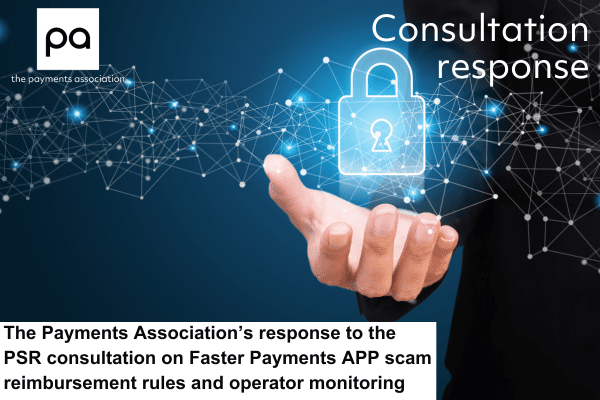
The Payments Association welcomes the opportunity to contribute to the PSR Consultation Paper “A new reimbursement requirement Faster Payments APP scam reimbursement rules and operator monitoring”. The community’s response contained
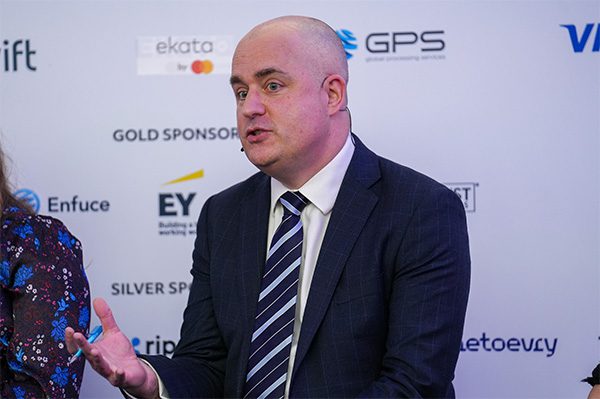
Chris Hemsley, managing director of the Payment Services Regulator (PSR), says the watchdog’s plan will be published by the end of June 2023.

The Payments Association’s head of policy and government relations Ricardo Tordera takes a look back at the trade body’s key achievements in 2022.

Santander is calling for more to be done to combat fraud because the PSR’s mandatory reimbursement plans for APP scam victims will be an unsustainable cost for banks and schemes.
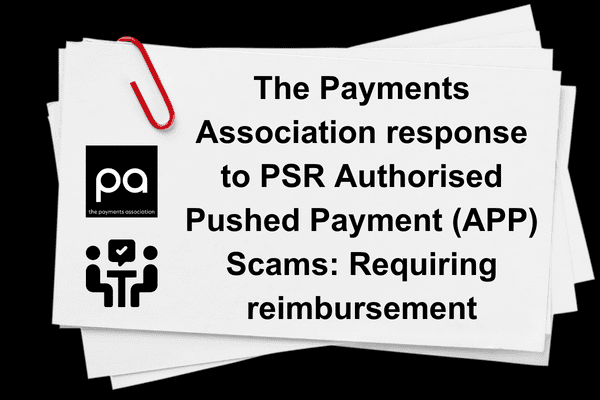
APP Scams continue to grow, and we appreciate the PSR is committed to doing more to protect consumers. Nonetheless, we do not believe that measures such as requiring mandatory reimbursement

Payment firms should be prepared for a higher cost of compliance when the Financial Services and Market Bill enters into force in 2023.

The PSR is seeking views on proposals to increase the protections against APP scams, create quicker and mandatory reimbursements and put greater pressure on banks and building societies to tackle APP fraud. The Payments Association will be responding.

The Payments Association asked Kate Fitzgerald, head of policy at the Payment Systems Regulator, about her work and what she will be discussing at the Financial Crime 360 conference.

Representatives from companies such as Starling Bank, American Express, Nationwide, Visa, Mastercard, Bottomline, Clearscore, Vyne, Pennies, Tink, Eversheds Sunderland, Baker Botts and many more came together to discuss the future open banking model.

Rather than building a single global rulebook for payments, regional rulebooks are the better approach in the medium term, according to industry participants.
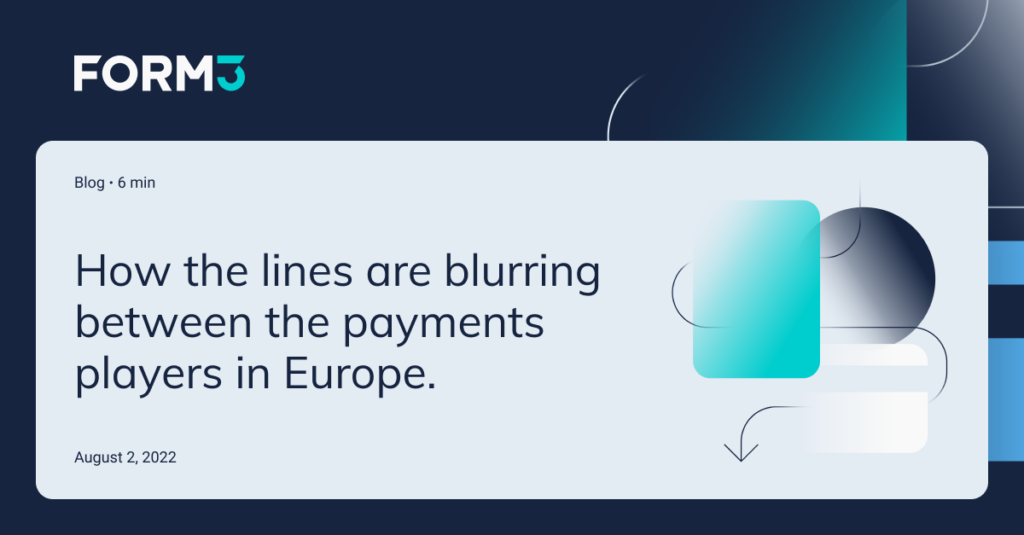
Fintech regulation in Europe shows no signs of slowing. So what are the main challenges and frameworks fintechs should be aware of to ensure their future success.
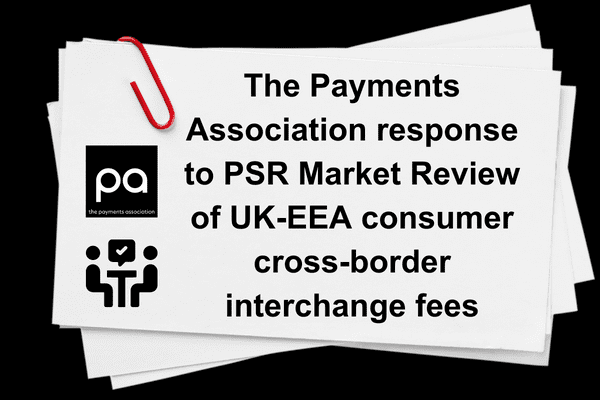
The Payments Association welcomes the opportunity to contribute to the PSR “Market Review of UK-EEA consumer cross-border interchange fees”. The community’s response contained in this paper reflects views expressed by
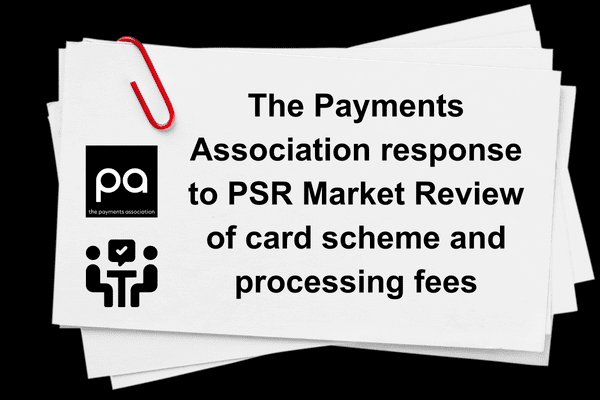
The Payments Association welcomes the opportunity to contribute to the PSR “Market Review of card scheme and processing fees”. The community’s response contained in this paper reflects views expressed by
The Payments Association
St Clement’s House
27 Clements Lane
London EC4N 7AE
© Copyright 2024 The Payments Association. All Rights Reserved. The Payments Association is the trading name of Emerging Payments Ventures Limited.
Emerging Ventures Limited t/a The Payments Association; Registered in England and Wales, Company Number 06672728; VAT no. 938829859; Registered office address St. Clement’s House, 27 Clements Lane, London, England, EC4N 7AE.







Log in to access complimentary passes or discounts and access exclusive content as part of your membership. An auto-login link will be sent directly to your email.
We use an auto-login link to ensure optimum security for your members hub. Simply enter your professional work e-mail address into the input area and you’ll receive a link to directly access your account.
Instead of using passwords, we e-mail you a link to log in to the site. This allows us to automatically verify you and apply member benefits based on your e-mail domain name.
Please click the button below which relates to the issue you’re having.
Sometimes our e-mails end up in spam. Make sure to check your spam folder for e-mails from The Payments Association
Most modern e-mail clients now separate e-mails into different tabs. For example, Outlook has an “Other” tab, and Gmail has tabs for different types of e-mails, such as promotional.
For security reasons the link will expire after 60 minutes. Try submitting the login form again and wait a few seconds for the e-mail to arrive.
The link will only work one time – once it’s been clicked, the link won’t log you in again. Instead, you’ll need to go back to the login screen and generate a new link.
Make sure you’re clicking the link on the most recent e-mail that’s been sent to you. We recommend deleting the e-mail once you’ve clicked the link.
Some security systems will automatically click on links in e-mails to check for phishing, malware, viruses and other malicious threats. If these have been clicked, it won’t work when you try to click on the link.
For security reasons, e-mail address changes can only be complete by your Member Engagement Manager. Please contact the team directly for further help.